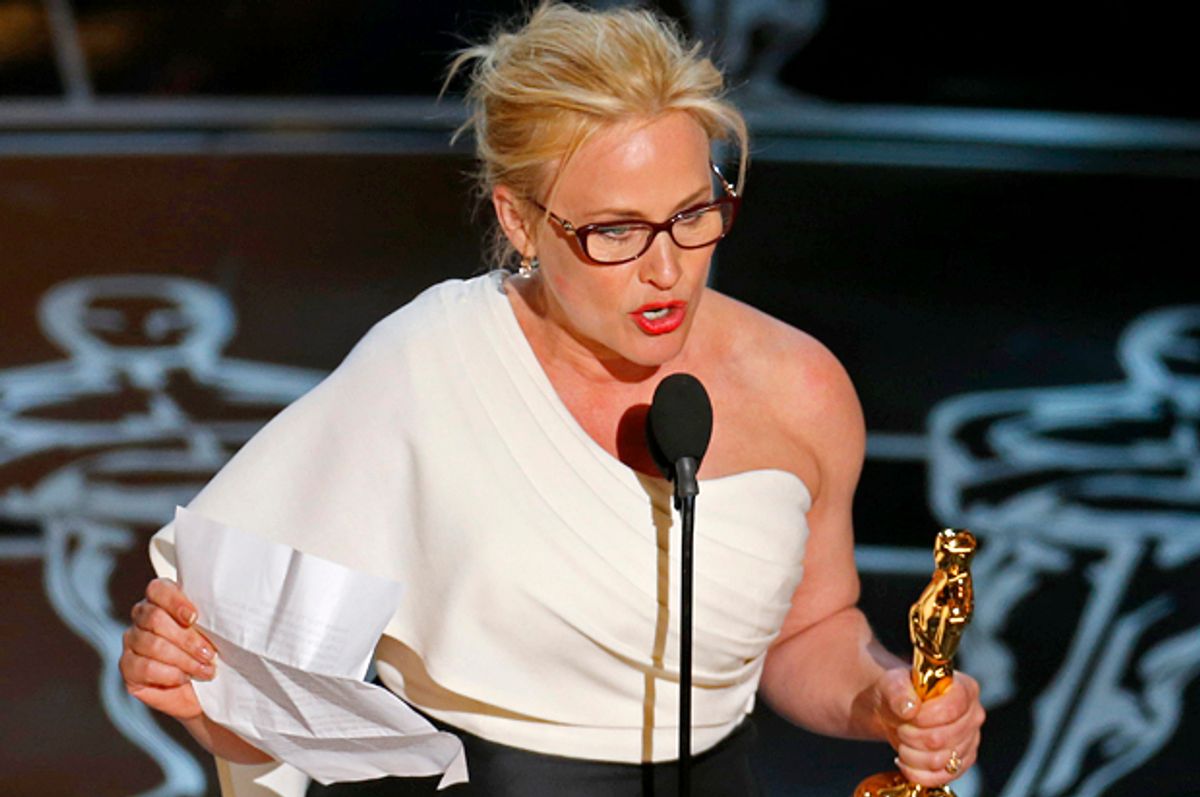Patricia Arquette elicited plenty of strong emotions (and subsequent criticism) with her comments at this year's Oscars, where she won the Academy Award for best supporting actress and used the ceremony stage to call for wage equality for women. Following her win, Arquette told reporters backstage that "it's time for all the women in America, and all the men that love women and all the gay people and all the people of color that we’ve all fought for" to join the fight for equal pay, sparking criticism for a lack of intersectionality and, it would seem, much of an understanding of contemporary feminism.
The actress fired back at critics on Twitter in the days after her speech, but she's not done clarifying yet. In a recent interview with Time's Dan D'Addario (formerly of Salon), Arquette explained that she had low-income women and women of color in mind when she demanded equal wages at the Oscars:
I wasn’t talking about my own position. ... What I was talking about is the other 52 percent, and how it doesn’t make sense why they’re being discriminated [against] because of their gender. They’re taking the same student loans but taking years to pay it back, making half a million to a million dollars less over a lifetime. That’s money they’re not putting into Social Security, or using to pay for college or childcare. I won an Academy Award because I played a single mom, moving and moving again and trying to provide for her kids. I thought long and hard about how her life would have been better with wage equality, and if she made those extra cents on the dollar; and how if she was Latina, she’d need to make those fifty cents more, or how if she was African-American, she’d need to make those 40 cents more.
Arquette also expressed her shock at the controversy, saying the criticism surprised her. "I guess I don’t think people really understood what I meant by that," she said. "I don’t think they understood what I was talking about, exactly. This is a huge discrimination issue affecting women across America. It affects whole lives — the impact of this."

Shares